#Jacob Ben Israel
Explore tagged Tumblr posts
Text
Most Controversial Glee Character Tournament: Jacob Ben Israel

About this character
2 notes
·
View notes
Text
Josh Sussman - what a nice guy, honest, and funny.
4 notes
·
View notes
Text
Choose your favorite criminal pt 2!!
Will Schuster: (after blackmailing students and watching them in the shower, suspending a 14 year old girl for not wearing a bikini, and preferring to twerk with his students then to make the school safer for the transgender student)

Jesse st James: (after manipulating Rachel, being verbally abusive to his peers, and trying to pressure Rachel into sex)

Sam Evans: (after dismissing Ryder's SA trauma, bullying a girl because she won't wear a bikini, and pressuring Mercedes to leave her boyfriend for him)

Mercedes Jones: (after cheating on her boyfriend, breaking kurts car, and not respecting boundaries with religion)

Sue Sylvester: (after manipulating the Cheerios into dangerous situations and purposely giving them EDs, blowing up wills car, and asking minors to be the sperm donor for her child)

Kitty Wilde: (after purposely giving Marley an ED, making transphobic comments to Unique, and the "left behind" prank)

Unique Adams: (after catfishing Ryder, huge public outbursts, and being annoying af 24/7)

Sebastian Smythe: (after blackmailing Rachel and Finn with nude photos, temporary blinding Blaine with rock salt, and not respecting boundaries)

Becky Jackson: (after bringing a gun to school, bulling students appearances, and sexually harassing students)

Jacob Ben Israel: (after blackmailing Rachel for used underwear, masterbating and watching porn in the library fully nude, and spreading hateful gossip)

#choose your favorite war criminal#glee#gleek#will schuester#mercedes jones#sue sylvester#kitty wilde#unique adams#becky jackson#jacob ben Israel#Sebastian smythe#sam evans#jessie st james
1 note
·
View note
Text
Jacob Ben Israel is hilarious. What a bizarre great character.
0 notes
Text
For fuck’s sake, Jacob. Asking for sexual favors is worse than hitting on someone. Flattery and IG comments are fine, but I draw the line at any of that other creepy shit. I need you to promise me you won't make any more unwanted advances towards my friends, otherwise I won't hesitate to take an axe to your gossip blog. Understand?

... I'm actually going to kill you.
Define 'hit on', because I just compliment them excessively and thirst-follow on IG. Sometimes I ask for sexual favors. And you can't do that to my blog!

By the way, I was dared to give you a lap dance, the other day. Yay or nay?
68 notes
·
View notes
Text
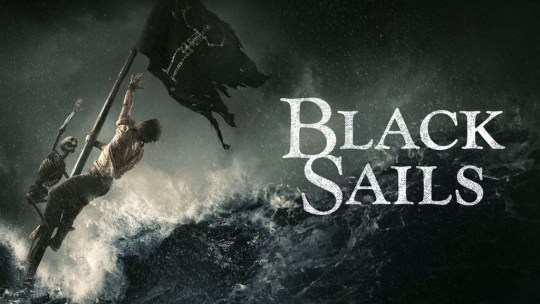
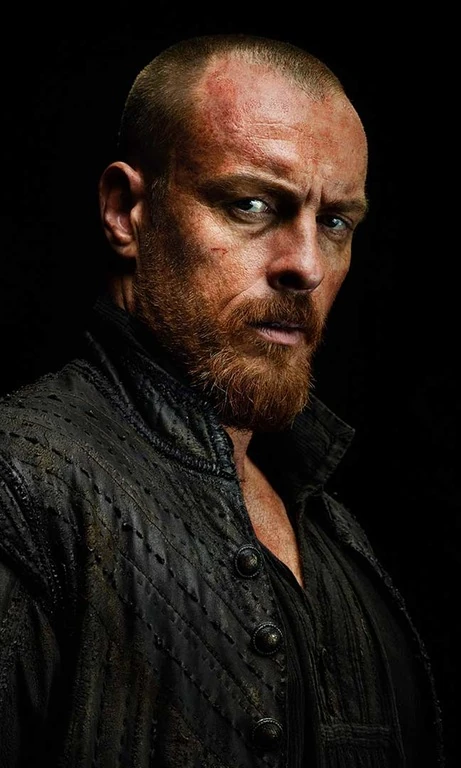
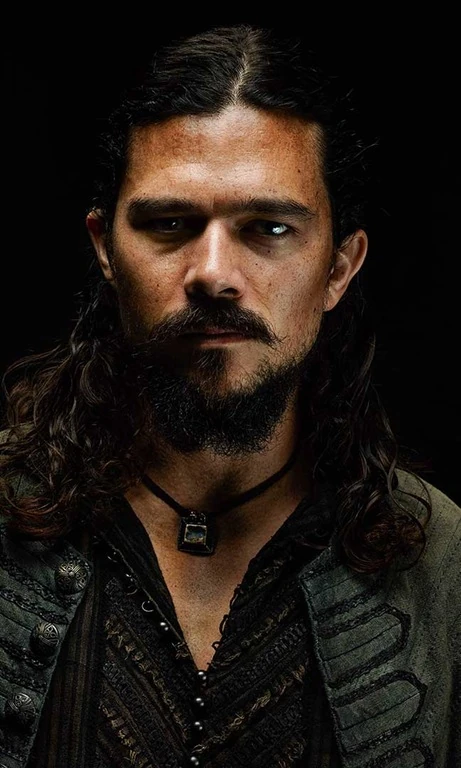
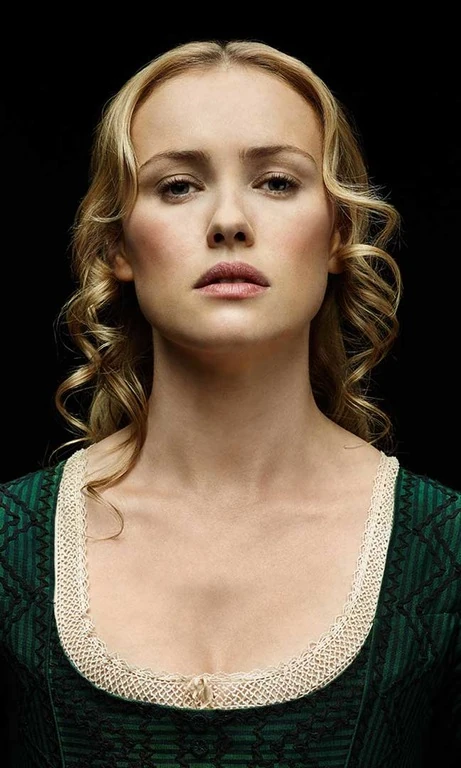
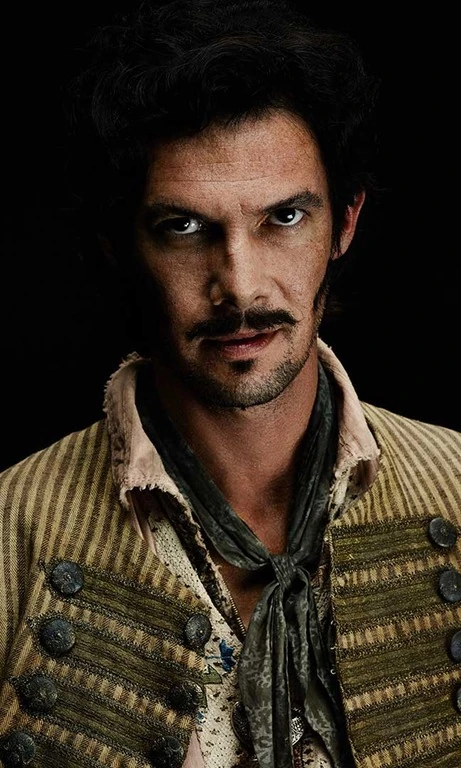
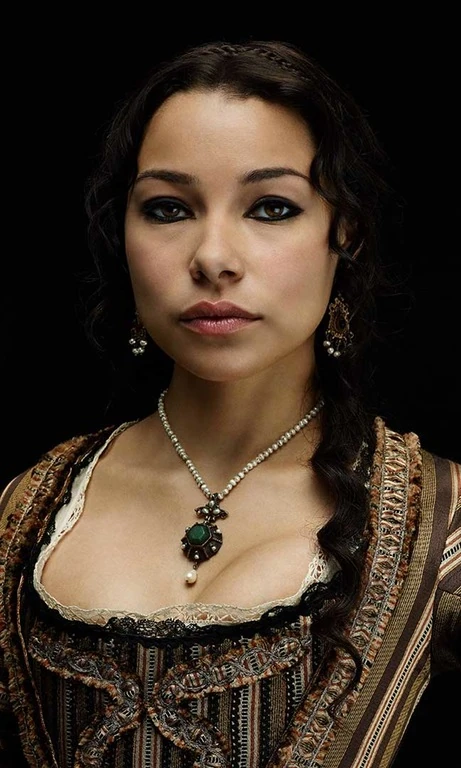
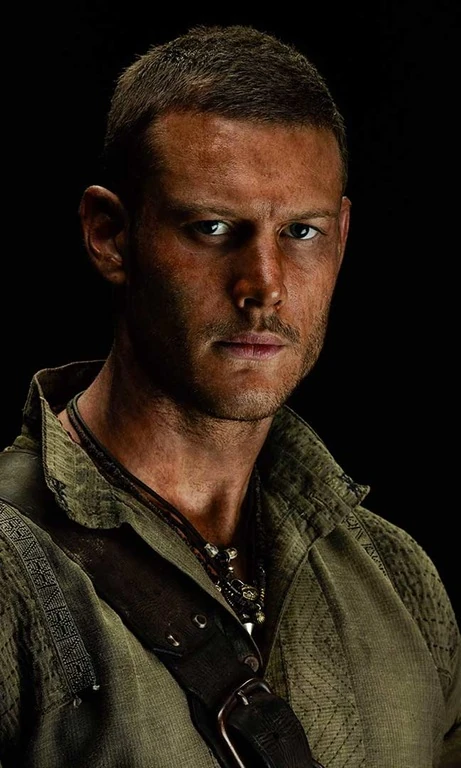
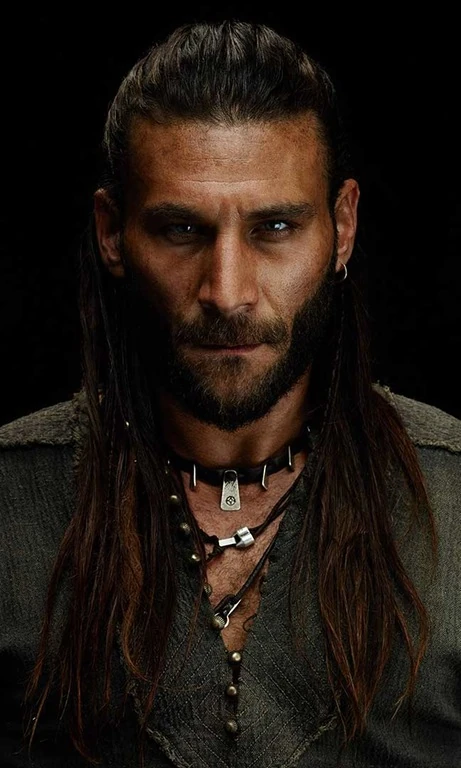
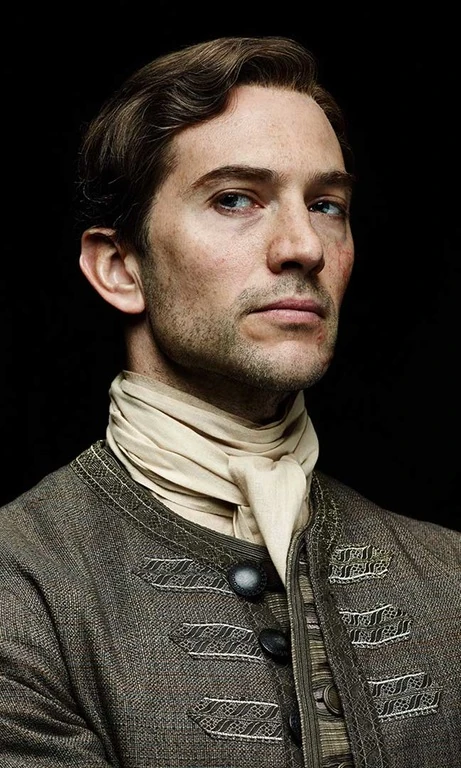
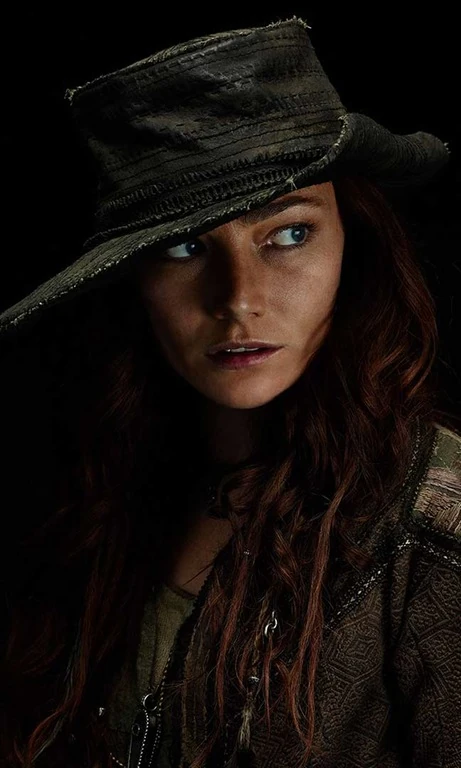
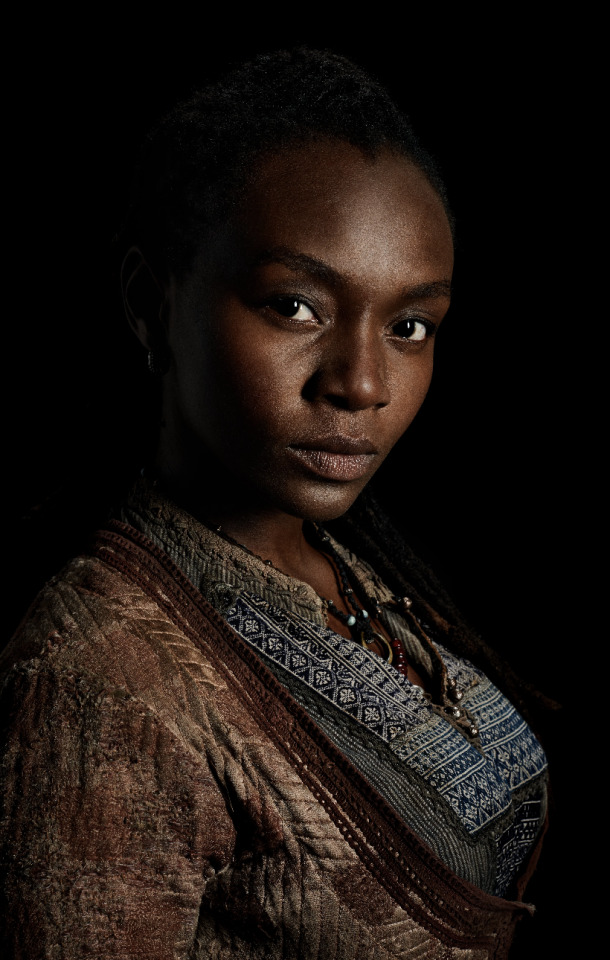
Black Sails Screen Time Breakdown
(Episode-by-episode listing at the link above)
Captain James Flint / Lt. James McGraw – 469:09 "Long" John Silver – 335:46 Eleanor Guthrie – 269:53 Captain Jack Rackham – 214:51 Max – 181:19 William "Billy Bones" Manderly – 163:57 Captain Charles Vane – 139:21 Governor Woodes Rogers – 130:52 Anne Bonny – 126:42 Madi – 84:29
Miranda Barlow / Miranda Hamilton – 83:15 Mr. Scott – 56:43 Hal Gates – 56:20 Dufresne – 48:44 Augustus Featherstone – 46:59 Captain Edward "Blackbeard" Teach – 46:03 Captain Benjamin Hornigold – 34:44 Mrs. Hudson – 34:16 Dooley – 32:43 De Groot – 29:56 Israel Hands – 29:38 Richard Guthrie – 28:07 Idelle – 22:53 Captain Berringer – 21:46 Joji – 21:36 The Maroon Queen – 20:51 Lord Peter Ashe – 20:17 Abigail Ashe – 20:14 Lord Thomas Hamilton – 17:59 Marion Guthrie – 17:50 Randall – 16:47 Ben Gunn – 15:58 Mrs. Mapleton – 15:34 Kofi – 14:57 Captain Ned Low – 14:55 Frasier – 14:26 Muldoon – 14:20 Jacob Garrett – 13:58 Pastor Lambrick – 12:52 Logan – 12:38 Eme – 11:42 Dr. Howell – 9:42 Vincent – 9:23 Jenks – 9:01 Lt. Utley – 8:50 Hamund – 8:02 Captain Bryson – 8:00 Morley – 7:51 Ellers – 7:14 Captain Chamberlain – 6:58 Soames – 6:55 Joshua – 6:48 Obi – 6:47 Singleton – 6:34 Ruth – 6:26 Lt. Kendrick – 6:22 Zaki – 6:18 Meeks – 5:37 Julius – 5:33 Wayne – 5:23 Captain Naft – 5:20
#Black Sails#James Flint#John Silver#Eleanor Guthrie#Jack Rackham#Max Black Sails#Billy Bones#Charles Vane#Woodes Rogers#Anne Bonny#Madi Black Sails#I went with only those ten for pictures btw for visual consistency#because these stills were post S2 and therefore Miranda doesn't have one etc so the pics end at top 10#yes I count it down to the second now somebody help me#this is also why I don't do as many of these anymore for those wondering#quality over quantity#screen time stuff
150 notes
·
View notes
Text
Candace Owens reveals that before his assassination, JFK wanted AIPAC to register as a foreign agent, but his request was ignored, and after his death, the requirement disappeared.
She explains that JFK and Israeli Prime Minister David Ben-Gurion were locked in heated arguments over Israel's nuclear weapons program.
Owens also highlights that Jack Ruby, born Jacob Rubenstein—the man who shot Lee Harvey Oswald—was an Israeli national who may have held dual citizenship. 🤔
#pay attention#educate yourselves#educate yourself#reeducate yourselves#knowledge is power#reeducate yourself#think about it#think for yourselves#think for yourself#do your homework#do your research#do some research#do your own research#ask yourself questions#question everything#jfk assassination#jfk#truth be told#hidden history#history lesson#history#lies exposed#government corruption#government secrets#news
126 notes
·
View notes
Text
I've recently seen a post on Tumblr that just, 'broke' something in me (for a lack of a better term).
So I just want to vent about it and another thing that's been bothering me.
(Disclaimer: this is a vent post. I am not an expert in the topics discussed. What I say is knowledge that I have learned from all kinds of places (school, history classes, researching for history projects, reading first hand written material from archives, and other places) and I don't have much the energy to compile everything source into a list (if I can even remember them). However, if you want to add, argue against, or argue in favor of something said here, correct me, you're welcome! Although, please act civil and cite your sources please. (I know I didn't and I'm sorry, but also please remember this is a vent post.) so anyways, here we start)
So, first of all:
Let's talk about Zionism. What does it mean?
To me, it seems that a lot of people think Zionism is something along the lines of 'racist bloodthirsty monstrous baby murderer and cold blooded killer and a rapist pedophile' since I keep seeing the word 'Zionist' in DNI lists next to 'nazis', 'pedophiles', 'minor attracted people', and other stuff like that.
I would love to hear what you think its definition is and I would love to hear where did you learn it, or perhaps any sources for such a definition.
Here's a brief recap of how Zionism was formed and what it is:
Zionism means the desire for Jewish self determination and self governing to exist/continue in the land/country of Israel.
It is an umbrella term, like the term queer, for example.
Zionism has deep roots in Judaism. A lot of practices and rituals in Judaism involve or are related to Israel. The name Israel comes from the name Jacob got from the angel he defeated, and after him the whole tribe of the Jewish people and the area are called Israel. The name Israel is in one of the most basic Jewish prayers - Shema Israel. Also, at the end of every pesach (Passover) Seder we say "Leshana habaa beyerushalaim habnuia" - next year in built Jerusalem. Jewish people have said so ever since the diaspora started.
Before the state of Israel existed, Zionism was about how to create and build Israel.
Three examples:
Political Zionism - create Israel by first getting a charter and international recognition and funding.
Practical Zionism - create Israel by first buying land, building settlements and developing the area.
Synthetic Zionism - a merge between the two movements above. Afaik most of the early political leaders of Israel were from that movement (for example, the first Israeli prime minister - David Ben Gurion).
Nowadays, Zionism is more vague. The reason for is that Israel already exits. The different movements on how to create Israel are kind of irrelevant now, because it exists now. The discussion on how to run Israel is perhaps what one may define as different movements within Zionism in modern time, however yet almost always when one says they are a Zionist, they mean they desire/want/believe that Israel should exist. That's it.
As such, Zionism alone doesn't say almost anything about the political view of the person who identifies as a Zionist.
Afaik basically 100% of Israeli Jews and around 80% of the Jews in America identify as Zionist. Under *this* definition.
Now because Israel exists, it's much harder to talk about different movements within Zionism which aren't basically political movements within Israel.
That leads me onto Kahanism.
Kahanism is an extremist far-right nationalist-racist religious Zionist movement (that I completely do not, I repeat: **do not** agree with). It was founded by the rabbi Meir Kahane, which believed that Jews should rule the whole area which was the kingdom of Israel in the days of the Tanach and should kill anyone who's an enemy of the Jewish people (which according to him, is basically everyone).
Here's an article that sums up some of my feelings about it in relation to the current events:
[https://archive.ph/2024.06.10-191347/https://www.haaretz.com/opinion/2024-06-10/ty-article-opinion/.premium/forget-being-anti-zionists-lets-be-anti-kahanists/00000190-0228-d660-af95-6fbed3e60000]
Now on to the post that 'broke the camel's back', per say.
The post said “I think that all Israelis should go back to Europe” and that it would solve all the problems here.
Let's try to break down the sentence “all Israelis should go back to Europe”. That sentence implies that that's where *all* Israelis came from.
What's "Israeli"? Afaik, since Israel is a country, Israeli is anyone who has Israeli citizenship (and some may even add 'and/or everyone who was born here').
What's Israel's population demographic? According to official government surveys, Israel has around ~9.9 million citizens, out of which ~73% (~7.227 million) are Jewish, ~21% (2.079 million) are Arab and the rest ~6% (0.594 million or 594 thousand) are classified as else.
The Arab population of Israel (which has equal rights as the Jewish population in Israel) and the Arab population of Gaza and the West Bank originate from the same group of people. Some of them originate from Arab people who had been here for hundreds of years (since the empires age) and many originate from Arab immigration between the end of the WW1 and the establishment of Israel.
Even if you claim that the Arab population of Gaza and the West Bank are the actual indigenous population of this area (despite numerous archeological and historical evidence pointing otherwise, although they do have a long history here), you cannot claim that just because a person was born or even just lived on the other (wrong, in your eyes) side of a border they aren't indigenous to the area!
In Israel, there are also a lot of minorities who are persecuted in other parts of the middle east. Such as: Druze, Armenians, Circassians and more. They have to go to Europe too? No, just the Jews? Surely this isn't antisemitism!
And let's talk about the Jewish population in Israel. MOST JEWS DID NOT COME FROM EUROPE! There are Jews who came from diaspora in Iran, Iraq, Yemen, Saudia, Ethiopia and a whole lot other countries through the middle east, south west Asia and north Africa. They have to go to Europe too?
And that's beside two other important facts: first of all, the Jews are indigenous to the levant. We are indigenous to the land of Israel.
And of course, do you now what happened to Jews all over the world, and especially Europe?
To name a few very notable examples: *The Spanish inquisition*, Kishinev pogrom, Jedwabne pogrom, *The Holocaust*, what that happened in the Soviet Union and many more pogroms, expulsions and massacares. (There were of course also pogroms in the MENA countries, however *I* haven't learned about them. Two examples I am told is notable is the farhood pogrom and the Holocaust in North Africa).
All throughout history, the Jews were expelled and massacred from almost every place. You then expectus to just come back to those places as if nothing has happened?
You want us to come so badly. Can you prove that we are safe to come? That we *have a place to come to*? Because so far you haven't shown that.
That when you and the people around you see a Jew, you won't immediately turn them into the scapegoat of every problom you have and then rape and/or expell and/or kill them.
And also, how would that solve more problems than it will create? Exchanging around ~2 million refugees for ~9.9 million refugees? How would that help? And even if you only mean the Jews (which I can't see how it isn't antisemitic) it's ok cause it's Jews? (which is even more antisemitic)
So no, it would not solve any problems. The country of Israel won't go anywhere, the Jews won't go anywhere, because we don't have anywhere to go - we were born here and we are staying.
However, yes, just as well, the Palestinians will probably not go anywhere (*not talking about Hamas and other similar groups here*). The only way to solve the situation is to unpack and deescalate those decades of conflict and escalation and hate, which will take a lot of work.
74 notes
·
View notes
Note
Hello, I apologise if this is rude, but may I ask what you meant by "Once someone becomes Jewish, they are given a new Jewish name"? What is a Jewish name, and what does it mean to be given one? (I'm sorry if this is an invasive or nosy question, I'm just curious as to what a Jewish name is and how it's different from a non-Jewish one.)
So, when people complete their conversion to Judaism, it's pretty standard practice for them to given a Jewish name. A Jewish name is typically in Hebrew, although some people's Jewish names are in Yiddish or another Judeo-language.
It's important for someone to have a Jewish name, because that is the name used for any religious events, such as marriage, getting called up to the Torah to be given and to give a blessing, and death. Jews who are born Jewish usually have a Jewish name, which is given at one's circumcision for males and naming ceremony for females.
For Jews in the diaspora, one's Jewish name isn't typically one's legal name, but some Jews (including myself and my siblings) just have the same legal and Jewish name. For example, a Jew might have Brian on his birth certificate but when he is called up to the Torah he might be called Binyamin ben (whatever his parents' Jewish names are).
Jewish names hold very important spiritual meanings. Many Jewish communities' naming customs are name after relatives or important religious figures or names related to a holiday someone was born (or became Jewish) near to on the calendar. I'm not a Jew-by-choice myself, but I know many Jews-by-choice choose Jewish names associated with figures from Jewish history who either converted themselves or had an experience of transformation. There's also a belief that when Jewish parents choose their baby's Jewish name, they are given a brief wave of Divine Prophecy when naming them.
There is no protocol on how to choose a Jewish name. If someone has a different legal name than their Jewish name, their Jewish name might not necessarily be related at all to their legal name, and vice versa. A person might have the name Jacob as their legal name, but then Avraham is their Jewish name. Or, they might be related, such as a person having the name Avigayil as their Jewish name and Abigail as their legal name.
In Ashkenazi Jewish communities, it is considered a bad omen to name a child after a living direct ancestor (parent, grandparent, great-grandparent, etc). Relatives who are not direct ancestors are fair game though (aunts, uncles, cousins, etc). However, in Sephardi communities, it is encouraged to name a child after their grandparents, even if they are still alive.
Names can also be omens. Really great Jewish visionaries and scholars might have a name added to their Jewish name with a meaning of "light" or something similar. Someone who is gravely ill might have a name added to their name with a meaning of "life" or "healing" or something similar. For example, I had a significant medical emergency as a newborn, and so my parents added a name to my Jewish name that means "alive".
When a person is named, either as a baby or an adult, there is a line in the naming blessing, "and May their name be called among Israel". This is the crux of why a Jewish name is important, it's the name a Jew is called by among their people and by G-d.
233 notes
·
View notes
Note
Hello!! Do you know of any fics that have to do with the Karofsky situation
So, when I saw your ask, I immediately thought of season 6 - but it's probably season 2 you mean? But I have included here references to season 2, and 3. If it's season 6 you want, I can do a separate ask for it, if you let me know. ~Jen
For season 2 reaction fics, some au, or pre the episodes! It's best to look at the old fanfic site, lovejournal. Here are some:
The Aftermath of the Karofsky Kiss by- iliketowriteaboutklaine (rebeldawgspirategirl)
Once Kurt got over the shock of Karofsky kissing him in the locker room, he had to tell the one person who would understand, at least a little bit. So, Blaine comes over.
~~~~~
Pancakes and the simple life by rainjoyswritings
Set the morning after Prom Queen. Warnings: Seriously, somehow I ended up in Karofsky's head. Because he's obsessed with Kurt Hummel too? Look, basically, deals with some of the intensely creepy shit going on in his head between NBK and Furt and if you don't want to know then that's cool, I didn't really either.
~~~~~
Truth and Consequences by rainjoyswritings (AU)
How To Survive parts one, two and three and And Dance, a big pile of angst. Azimio pushes Karofsky too hard against himself and specifically against Kurt, and the fallout reverberates through everyone's lives, including his own. The whole verse can also be downloaded as a PDF at Klaineficspdfs <3
Warnings: The aftermath of violence and a suicide attempt, so it could be pretty triggery. Also just like angsty as all fuck. Nothing past Original Song, but set sometime after S2.
~~~~
And the truth shall set you free by @slayerkitty
Author's Note: This fic ate my brain. No, really. It was supposed to be just a short one-shot based on a prompt from foreverfaith101 , in which Kurt transfers back to Mckinley, and on his first day back is cornered by Karofsky in the boys locker room. Karofsky tries to apologize (and based on 2.12, I didn't find that too out of character), but the entire thing is broadcast in the gym during a pep rally (Jacob Ben Israel, I'm looking at you), and the truth about the kiss comes out. It's...not so short, lol. Written pre 2.18
~~~~~
Coffeespills by elanorelle
"Come on, I'll buy you lunch." Kurt and Blaine after the second Karofsky confrontation in Never Been Kissed.
~~~~~
3X14 tab - our library tab relating to On My Way season 3.
~~~~~~
There But For the Grace of… by flamingmuse
By the time the front door opens, Burt is sitting in his favorite spot on the couch, pretending to watch TV.
set during 3x14 ("On My Way")
~~~~~
Being Born is the Hardest Thing By @wowbright
Blaine is sleeping in Kurt’s bed while the rest of the family is home because, this week, no one has the energy for pretense. Feelings, with hope.
~~~~~
Looking For White Buffalo by @wowbright
Burt wants to make sure that Kurt is doing things for the right reasons. Visiting your former bully in the hospital? Maybe that’s not such a good idea.
~~~~~
Visitations by etmuse
David Karofsky receives two unexpected visitors. Set after 3x14
~~~~~
13 notes
·
View notes
Note
are there any Jews who view Jesus in a positive way (aside from like messianic Jews who, as far I’ve understood, are considered evangelical Christians by all other Jews)
Okay, ah, to answer this question simply: to my knowledge, as far as Jewish communities who (1) self-identify as Jewish, (2) consider themselves practicing Judaism, and (3) deny that Jesus of Nazareth is the Messiah go, none of them have an "official" stance on Jesus. Jesus may be a false Messiah, but this is only a "doctrine" in Judaism the same way that the fact that Vissarion of Siberia is a false Parousia of Jesus is a "doctrine" in Christianity — which is to say, not so much an actually asserted belief, but a natural corollary to more deeply held beliefs.
That being said, individual Jewish people have held a variety of beliefs about Jesus of Nazareth. Some of them are, well, quite negative. For example, one Hasidic story tells of how the Baal Shem Tov saw Jesus and Sabbatai Zvi (both false Messiahs) stuck in the same level of Hell together; the infamous Toledot Yeshu, a parody gospel, certainly does not paint Jesus or His Mother in a particularly good light; Maimonides doesn't even use the usual "may his name be blotted out" as he would when talking about an enemy of Israel, but instead uses "may his bones be ground to dust" after citing Jesus by name.
There are relatively sympathetic views among those whose views are negative too, for the record; for example, there's a story of a Rabbi, Yehoshua ben Prachya, who was said to have been incredibly cruel to a student, and by the time he chose to relent that student had already gone off to form his own idolatrous sect. Struck by the consequences of his harshness, he would go on to emphasize the importance of kindness and giving people the benefit of the doubt. Though the timeline doesn't match up (Yehoshua lived two hundred years before Him), some commentators identified this student as Yeshu the Nazarene.
But, let's actually answer your question. You will find a spectrum of relatively positive views. Bob Dylan technically falls outside the parameters I listed above because he does seem to believe Jesus is the Messiah, but I'll use him as the extreme example, because he continued to be active in his Orthodox Jewish community after his conversion. You also have Leonard Cohen, whose Jewishness was very important to him, who could at least understand the importance of the mystical connection to Jesus that Christians claimed as their own — "the figure of Jesus, nailed to a human predicament, summoning the heart to comprehend its own suffering."
You have some scholars, like Amy-Jill Levine; in the work she did in The Misunderstood Jew, The Historical Jesus in Context, and The Jewish Annotated New Testament, she tries to emphasize the idea that the Person of Jesus is something that can bring Christians and Jews into closer ecumenical dialogue; that if Christians could get more comfortable with the Jewish context of Jesus, and if the Jewish community could see the New Testament as a corpus of texts that isn't non-Jewish, but rather a particular type of first century Jewish, then there could be ground for both groups to better understand each other.
During the early modern period, there were attempts by some Jewish thinkers to reclaim Jesus. Rabbi Jacob Emden argued that Jesus never meant to abolish the Law, and that He has actually "done a double kindness in the world" by increasing veneration of the Torah and bringing light to the Gentiles, if only the Gentiles could learn how to properly interpret their own Scriptures (talk about flipping the script!). Moses Mendelssohn also claimed that Jesus never meant to abrogate the Law, and suggested that Jesus and the early Christian community could be models that modern 19th century Jews living among oppressive Prussian authorities could emulate.
The above paragraph was about Jewish individuals who tried to distance Jesus from traditional Christian understandings of Him. So I'm going to end, I think, with Rabbi Jacob Neusner, who engaged the Gospel on its own terms. In 1993, he published A Rabbi Talks with Jesus. In this book, Rabbi Neusner imagines himself as a first century Jewish man and tries to earnestly listen to and consider the words of Jesus as depicted in the Gospel of Matthew. This work places the words of Jesus in conversation with the Rabbinic tradition, and ultimately ends with Neusner being unconvinced and unable to follow Jesus as His disciple. Pope Benedict lauded this work as an authentic exercise in interreligious dialogue, and cites it frequently in his own Jesus of Nazareth.
#asks#Jesus Christ#Christianity#Judaism#Moses Mendelssohn#Jacob Neusner#Amy-Jill Levine#Toledot Yeshua#Talmud#Baal Shem Tov#Maimonides#Leonard Cohen#Bob Dylan#Yehoshua ben Prachya#Pirkei Avot#Jacob Emden#Sabbatai Zvi#Messiah#religious pluralism
24 notes
·
View notes
Text
He Shall Add
One My father had two names. One, Jacob, the heel, the grasper, the deceiver. Two, Israel, the man who wrestled with angels, the God-touched, the one who would forever live in awe and blessing.
My father had two wives. One, the wife he didn’t choose, the one he was deceived into taking. Two, the favored one, the one he toiled seven years to win – we heard that story a thousand times – my mother. They all said I looked like her. (And then the two slave women, of whom no one speaks.)
My father thought he was Israel now. He said the angel changed his name, and with his name, his nature. He thought he started over, sometimes more than once a day, and if he started over, then we must too.
My father was two but the two were one. Jacob stole a blessing. Israel wrestled one out. The grasped heel, the wrenched hip. There was no split within him – he enacted it on us.
Two
My mother waited years to bear a child, and when at last I came, they set me apart – the favored one, so lucky to be gifted with robes befitting any spoiled princess and told not to do work that’d sully them. So lucky to be sent into the field and told to snitch to Dad about my brothers (or, should I say, the other mothers’ sons).
The robe fit wrong and chafed against my body (or else my body grew to be untrue – the swell of bust and hips belied my story that I was switched inside my mother’s womb and what was once a girl is now a boy in all the ways that matter).
One day as we were standing in the field I told my brothers that I had a dream, that all their sheaves of grain bowed down to mine, the sun, the moon and the eleven stars (how tiny was my universe back then) bowed down to me from far up in the sky.
At this point I always ask myself if I brought on my fate by telling them – I should have known they wouldn’t take it well – I knew my own self well enough to know that I dreamed true, but others were a puzzle – such a foolish, ignorant boy I was –
for the crime of being “lord of dreams” they debated how to kill me off, but in the end they chose to spare my life and sold me into slavery instead.
At least I got to leave that robe behind.
Three
What can I tell you about the slavers’ gang… they thought that pretty creature was a girl.
No one knows how many boys like me are murdered. Most of us are laid to rest as girls. But even in the enlightened times from which you look back upon my story, half of us are victims of a crime that some would call befitting.
Four
They gave all the slaves a plain sheet of cloth and I fashioned from it a men’s garment and took my place as a serving boy.
There I rose within the household (what did I do to attract such attention, why could I not remain anonymous and unseen) – my master approved of my work and placed me above the others; my mistress took an eye to me (my soft hands, my gentle eyes – such a pretty boy, I bet you’d be good at –) God help me, on some level it felt good.
And then one day she got me alone – I told her no, it wasn’t right – and then she reached for me and found what wasn’t there and I tried to run, and she wouldn’t let go and I tore myself from her grasp leaving my clothes in her hands and she screamed and it was all over.
Five
In jail I learned to listen. You’d have thought my father wanted that (with all the times he screamed that no one listened, that no one understood, only my sainted mother understood him and then little Ben took her from him) – but to him I was a symbol, I was her reflection, and it’s not convenient when symbols talk back or understand too much –
but on the inside, in that forsaken place where no one knew if they would live to see another day, I learned to hear the things that they weren’t saying, to make myself a mirror for the soul. Again I rose – I gained a reputation that I could hear the messages of dreams (that was only a sliver of the truth of everything I was, or everything these places made me into).
I told one man he was about to die. I told another that he would be spared. I asked him if he could remember me when he returned to life on the outside. I never thought I’d see daylight again.
Six
One day (after my gift for dreams saved the land, after I was pardoned, after I rose to rule beside the king, after a woman loved me, after a whole country called me by my name) the famine drove my brothers to my doorstep –
I saw them fall on their faces before me, and I saw they did not recognize the man I had become
From the outside, you can see the poetry, that that same gift that made my brothers hate me became the thing that saved them
I could not see the whole pattern from within it I could only see each step before me and hope that I chose right
I hid my identity I let them think I was someone else I hid their silver in their bags I tricked them to get them alone I sent them on an ordeal through the desert
I gathered my family in and all the threads of different hues were woven into the full design
(my great-grandfather said his wife was his sister, my father passed himself off as my uncle, my stepmother pretended she was my mother, my mother hid her father’s idols in her bag, my brothers spilled blood on my clothes and said that the one who wore them was dead – the ripples spread across the pond and intersect, the echo harmonizes with itself)
We spun the strands of fate into something new we gave them the chance to be otherwise we gave the pattern a chance to change
I cannot say I felt no pleasure in hearing them weep and call me brother
I told them that God made something good from all the evil they had done to me but I don’t think that they could understand what it means to be the loom on which a new self is fashioned, and to be the raw material, and the craftsman, all at once
I don’t think that they could understand that it took someone who had transformed by sinking to the lowest of the low and rising as a new synthesis to rewrite our family’s story
Seven
My sons did not grow up to hate each other. If nothing else that I did turned out right –
reader from the far future, looking back on millennia of slavery and war
and exile and conquering empire and endless blood spilled on my beloved lands –
know that at least they did not grow to hate, know that my father blessed us in the end.
(There is no going back, no starting over, no stating that the past no longer matters –
but there is going forward, there is building for the future, there is telling the whole truth.)
There’s no such thing as a real happy ending, only the place the teller stops – but know
there was a time when we loved more than we hated, when we were not too proud to reconcile.
Amidst the merciless waste of history, that was enough to build ourselves a shelter,
to raise a little light against the dark.
18 notes
·
View notes
Note
🦦 for Ariel?
Thank you so much @ginger-grimm!!! 💕 Gonna tag the Glee moots @luucypevensie, @manyfandomocs, @rose-of-oz and @ginevrastilinski-ocs!! 💕
Their favorite childhood show: Hey Arnold!
What they would get at the gas station/7-11: When Ariel is making long journeys, which tends to be the only time, she will get an iced coffee and some Nacho Cheese Doritos.
What they wanted to be as a child: Ariel was a child. She wanted to be a spy or secret agent when she grew up.
Their favorite flower: Black Narcissus Dahlia, which has dark maroon flowers with a pinkish center.
What animals they always wanted/still want to see first at the zoo: The snow leopard. She really admires how beautiful and mysterious they look.
Their guilty pleasure reality show: Punk'd.
The first DVD/CD they ever owned: The first CD was American Idiot by Green Day, and the first DVD was The Witches (1990).
One thing/moment they’re really proud of: One moment that Ariel is proud of is the time she stuck up for her sister Rachel, when Jacob Ben Israel was obsessively flirting with her, so Ariel threatened to chop off his dick with a pair of scissors from Principal Figgins' office, before punching him hard in the face.
Their go-to YouTube video genre: Reaction Videos.
Something odd they like: Fictional girls with muscle.

3 notes
·
View notes
Text
Which Glee characters are included in this tournament?
Short answer: a lot of them.
I've included nearly a hundred characters, just to be thorough. Below the cut is a list of all the characters who will get polls. If there is an obscure character who is not on this list but you really want them to be included, send an ask and I'll probably add them in.
Adam Crawford
Alistair
Alma Lopez
Andrea Carmichael
April Rhodes
Artie Abrams
Azimio Adams
Becky Jackson
Blaine Anderson
Brad
Bree
Brittany Pierce
Brody Weston
Bryan Ryan
Burt Hummel
Carl Howell
Carmen Tibideaux
Carole Hudson-Hummel
Cassandra July
Chandler Kiehl
Clint
Cooper Anderson
Cooter Menkins
Dalton Rumba
Dani
Dave Karofsky
David Martinez
Dottie Kazatori
Dustin Goolsby
Elliott Gilbert
Emma Pillsbury
Finn Hudson
Harmony
Hiram Berry
Holly Holliday
Howard Bamboo
Hunter Clarington
Isabelle Wright
Jacob Ben Israel
Jake Puckerman
Jane Hayward
Jean Baptiste
Jean Sylvester
Jeremiah
Jesse St. James
Joe Hart
Judy Fabray
Julia Chang
June Dolloway
Ken Tanaka
Kendra Giardi
Kitty Wilde
Kurt Hummel
Lauren Zizes
LeRoy Berry
Lord Tubbington
Madison McCarthy
Maribel Lopez
Marley Rose
Mason McCarthy
Matt Rutherford
Mercedes Jones
Mike Chang
Mike Chang Sr.
Millie Rose
Mrs. Puckerman
Myron Muskovitz
Nancy Abrams
Noah "Puck" Puckerman
Pavarotti
Penny Owen
Principal Figgins
Quinn Fabray
Rachel Berry
Richard "Rick The Stick" Nelson
Rod Remington
Roderick Meeks
Rory Flanagan
Roz Washington
Russell Fabray
Ryder Lynn
Sam Evans
Sandy Ryerson
Santana Lopez
Sebastian Smythe
Shelby Corcoran
Sheldon Beiste
Skylar
Spencer Porter
Stoner Brett Bukowski
Sue Sylvester
Sugar Motta
Sunshine Corazon
Terri Del Monico
Tina Cohen-Chang
Unique Adams
Will Schuester
2 notes
·
View notes
Text

Jacob Returns to Bethel
1 Then God said to Jacob, “Arise, go up to Bethel, and settle there. Build an altar there to the God who appeared to you when you fled from your brother Esau.”
2 So Jacob told his household and all who were with him, “Get rid of the foreign gods that are among you. Purify yourselves and change your garments. 3 Then let us arise and go to Bethel. I will build an altar there to God, who answered me in my day of distress. He has been with me wherever I have gone.”
4 So they gave Jacob all their foreign gods and all their earrings, and Jacob buried them under the oak near Shechem.
5 As they set out, a terror from God fell over the surrounding cities, so that they did not pursue Jacob’s sons. 6 So Jacob and everyone with him arrived in Luz (that is, Bethel) in the land of Canaan. 7 There Jacob built an altar, and he called that place El-bethel, because it was there that God had revealed Himself to Jacob as he fled from his brother.
8 Now Deborah, Rebekah’s nurse, died and was buried under the oak below Bethel. So Jacob named it Allon-bachuth.
9 After Jacob had returned from Paddan-aram, God appeared to him again and blessed him. 10 And God said to him, “Though your name is Jacob, you will no longer be called Jacob. Instead, your name will be Israel.” So God named him Israel.
11 And God told him, “I am God Almighty. Be fruitful and multiply. A nation—even a company of nations—shall come from you, and kings shall descend from you. 12 The land that I gave to Abraham and Isaac I will give to you, and I will give this land to your descendants after you.”
13 Then God went up from the place where He had spoken with him.
14 So Jacob set up a pillar in the place where God had spoken with him—a stone marker—and he poured out a drink offering on it and anointed it with oil. 15 Jacob called the place where God had spoken with him Bethel.
Benjamin Born, Rachel Dies
16 Later, they set out from Bethel, and while they were still some distance from Ephrath, Rachel began to give birth, and her labor was difficult. 17 During her severe labor, the midwife said to her, “Do not be afraid, for you are having another son.”
18 And with her last breath—for she was dying—she named him Ben-oni. But his father called him Benjamin.
19 So Rachel died and was buried on the way to Ephrath (that is, Bethlehem). 20 Jacob set up a pillar on her grave; it marks Rachel’s tomb to this day.
The Sons of Jacob (1 Chronicles 2:1–2)
21 Israel again set out and pitched his tent beyond the Tower of Eder. 22 While Israel was living in that region, Reuben went in and slept with his father’s concubine Bilhah, and Israel heard about it.
Jacob had twelve sons:
23 The sons of Leah were Reuben the firstborn of Jacob, Simeon, Levi, Judah, Issachar, and Zebulun.
24 The sons of Rachel were Joseph and Benjamin.
25 The sons of Rachel’s maidservant Bilhah were Dan and Naphtali.
26 And the sons of Leah’s maidservant Zilpah were Gad and Asher.
These are the sons of Jacob, who were born to him in Paddan-aram.
The Death of Isaac
27 Jacob returned to his father Isaac at Mamre, near Kiriath-arba (that is, Hebron), where Abraham and Isaac had stayed.
28 And Isaac lived 180 years. 29 Then he breathed his last and died and was gathered to his people, old and full of years. And his sons Esau and Jacob buried him. — Genesis 35 | Berean Standard Bible (BSB) Berean Standard Bible is produced in cooperation with Bible Hub, Discovery Bible, OpenBible.com, and the Berean Bible Translation Committee. Cross References: Genesis 9:1; Genesis 12:6-7; Genesis 13:18; Genesis 15:15; Genesis 17:5; Genesis 17:22; Genesis 18:1; Genesis 18:19; Genesis 24:59; Genesis 25:8; Genesis 25:20; Genesis 25:26; Genesis 27:43; Genesis 28:15; Genesis 28:18-19; Genesis 28:22; Genesis 29:31; Genesis 30:5; Genesis 30:10; Genesis 30:22; Genesis 30:24; Genesis 42:4; Genesis 47:9; Genesis 48:7; Genesis 49:4; Exodus 15:16; Joshua 15:21; Ruth 1:2; Ruth 4:11; 1 Samuel 10:2; 1 Samuel 17:12; 1 Chronicles 2:1 Micah 4:8; Acts 7:8
Divine Terror
#Jacob returns to Bethel#Jacob given a new name#Israel#Benjamin born#Rachel dies#the sons of Jacob#Isaac dies#Genesis 35#Book of Genesis#Old Testament#BSB#Berean Standard Bible#Bible Hub#OpenBible#Berean Bible Translation Committee#Discovery Bible
4 notes
·
View notes
Text
Vocal Adrenaline Audition

Pulling the curtains apart, Jacob Ben Israel walked on stage with visible excitement. No, he wasn't a singer, but he could give a performance... probably.
"Yo, what's up everyone? Jacob Ben Israel here." Hyping up a nonexistent crowd, as he walked from stage left to right, giving Stacey a quick wave. "You guys ready for this? Let's go..."
Finally, he approached the mic, and pulled it off the stand. JBI cleared his throat before the backing track began,
and then he starts rapping...

7 notes
·
View notes